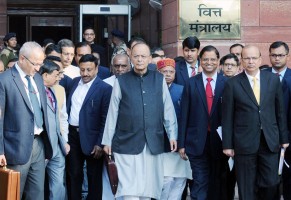
Sector-focused groups appointed to ensure smooth-transition to GST
The Dollar Business Bureau
To allow enough time for Central Board of Excise and Customs (CBEC) to address industry concerns, the government has appointed around 10 different committees to individually look into the problems faced by specific sectors in making a shift to GST.
Textiles, banking, insurance, exports, information technology, telecom, gems and jewellery, oil and gas, logistics, and MSMEs, are sectors marked for a thorough review to ensure smooth economic transition to the new tax regime.
These groups, responsible for reporting and resolving sectoral issues, will be headed by senior tax officials, who will be required to file a report by April 10, 2017.
Although GST is a progressive, forward-looking reform, many have expressed doubts over India's readiness to adopt a digital taxation system, given a large number of traders with no exposure/access to the required digital infrastructure.
The 1% TCS (tax collected at source) in the field of e-commerce has also faced opposition from e-commerce operators due to high compliance costs and increased administrative burden.
For export-intensive sectors, it is necessary to ensure that current incentivisation schemes and tax exemptions are effectively continued even after implementation of GST.
The banking sector has its own issues with taxation of 'self-supplied' services (from one branch to another) mandated under draft GST law.
A host of other unresolved issues can be examined with fine detail now that each committee has a particular sector to focus on, even though the GST Council is actively dealing with economy-wide concerns.
The components of GST bill (C-GST, I-GST, S-GST, UT-GST, and Compensation Bill), approved by the President of India, are going to be presented in the Parliament as a 'money bill' during this week. The bill is expected to pass before the ending of budget session on April 12, 2017. If everything proceeds as scheduled, GST can be rolled out nationwide on July 1, 2017.






 to success.
to success.